第214章
HOW MR.WINKLE, WHEN HE STEPPED OUT OF THE FRYINGPAN, WALKED GENTLY AND COMFORTABLY INTO THE FIRET HE ill-starred gentleman who had been the unfortunate cause of the unusual noise and disturbance which alarmed the inhabitants of the Royal Crescent in manner and form already described, after passing a night of great confusion and anxiety, left the roof beneath which his friends still slumbered, bound he knew not whither.The excellent and considerate feelings which prompted Mr.Winkle to take this step can never be too highly appreciated or too warmly extolled."If," reasoned Mr.Winkle with himself, "if this Dowler attempts (as I have no doubt he will) to carry into execution his threat of personal violence against myself, it will be incumbent on me to call him out.He has a wife; that wife is attached to, and dependent on him.Heavens! If I should kill him in the blindness of my wrath, what would be my feelings ever afterwards!" This painful consideration operated so powerfully on the feelings of the humane young man, as to cause his knees to knock together, and his countenance to exhibit alarming manifestations of inward emotion.Impelled by such reflections, he grasped his carpet-bag, and creeping stealthily down-stairs, shut the detestable street-door with as little noise as possible, and walked off.Bending his steps towards the Royal Hotel, he found a coach on the point of starting for Bristol, and, thinking Bristol as good a place for his purpose as any other he could go to, he mounted the box, and reached his place of destination in such time as the pair of horses, who went the whole stage and back again twice a day or more, could be reasonably supposed to arrive there.
He took up his quarters at The Bush, and, designing to postpone any communication by letter with Mr.Pickwick until it was probable that Mr.
Dowler's wrath might have in some degree evaporated, walked forth to view the city, which struck him as being a shade more dirty than any place he had ever seen.Having inspected the docks and shipping, and viewed the cathedral, he inquired his way to Clifton, and being directed thither, took the route which was pointed out to him.But, as the pavements of Bristol are not the widest or cleanest upon earth, so its streets are not altogether the straightest or least intricate; Mr.Winkle being greatly puzzled by their manifold windings and twistings, looked about him for a decent shop in which he could apply afresh, for counsel and instruction.
His eye fell upon a newly-painted tenement which had been recently converted into something between a shop and a private-house, and which a red lamp, projecting over the fan-light of the street-door, would have sufficiently announced as the residence of a medical practitioner, even if the word "Surgery" had not been inscribed in golden characters on a wainscot ground, above the window of what, in times bygone, had been the front parlour.
Thinking this an eligible place wherein to make his inquiries, Mr.Winkle stepped into the little shop where the gilt-labelled drawers and bottles were; and finding nobody there, knocked with a half-crown on the counter, to attract the attention of anybody who might happen to be in the back parlour, which he judged to be the innermost and peculiar sanctum of the establishment, from the repetition of the word surgery on the door--painted in white letters this time, by way of taking off the monotony.
At the first knock, a sound, as of persons fencing with fire-irons, which had until now been very audible, suddenly ceased; at the second, a studious-looking young gentleman in green spectacles, with a very large book in his hand, glided quietly into the shop, and stepping behind the counter, requested to know the visitor's pleasure.
"I am sorry to trouble you, sir," said Mr.Winkle, "but will you have the goodness to direct me to--""Ha! ha! ha!" roared the studious young gentleman, throwing the large book up into the air, and catching it with great dexterity at the very moment when it threatened to smash to atoms all the bottles on the counter.
"Here's a start!"
There was, without doubt; for Mr.Winkle was so very much astonished at the extraordinary behaviour of the medical gentleman, that he involuntarily retreated towards the door, and looked very much disturbed at his strange reception.
"What, don't you know me?" said the medical gentleman.
Mr.Winkle murmured, in reply, that he had not that pleasure.
"Why, then," said the medical gentleman, "there are hopes for me yet;I may attend half the old women in Bristol if I've decent luck.Get out, you mouldy old villain, get out!" With this adjuration, which was addressed to the large book, the medical gentleman kicked the volume with remarkable agility to the further end of the shop, and, pulling off his green spectacles, grinned the identical grin of Robert Sawyer, Esquire, formerly of Guy's Hospital in the Borough, with a private residence in Lant Street.
"You don't mean to say you weren't down upon me!" said Mr.Bob Sawyer, shaking Mr.Winkle's hand with friendly warmth.
"Upon my word I was not," replied Mr.Winkle, returning the pressure.
"I wonder you didn't see the name," said Bob Sawyer, calling his friend's attention to the outer door, on which, in the same white paint, were traced the words "Sawyer, late Nockemorf.""It never caught my eye," returned Mr.Winkle.
"Lord, if I had known who you were, I should have rushed out, and caught you in my arms," said Bob Sawyer; "but upon my life, I thought you were the King's-taxes.""No!" said Mr.Winkle.
"I did, indeed," responded Bob Sawyer, "and I was just going to say that I wasn't at home, but if you'd leave a message I'd be sure to give it to myself; for he don't know me; no more does the Lighting and Paving.